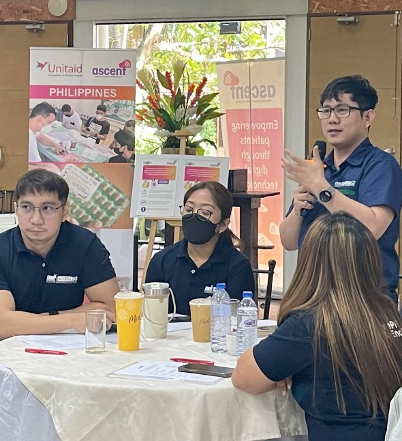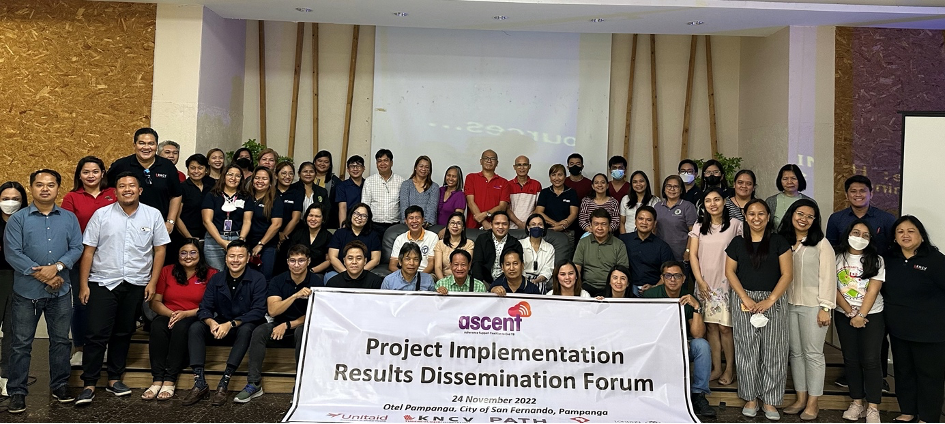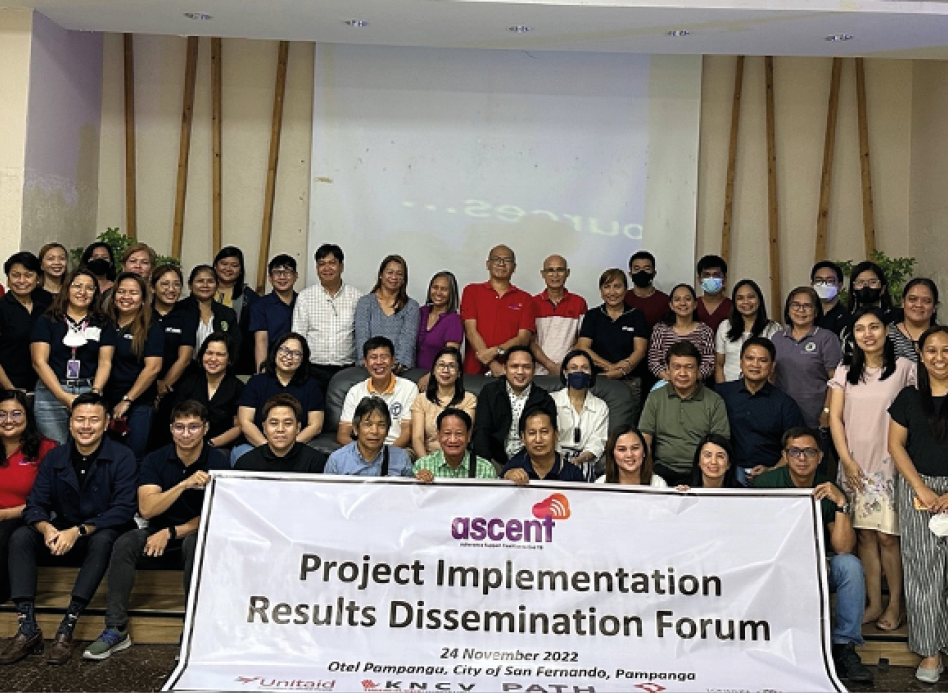Tuberculosis (TB) service providers, program implementers, decision makers, and advocates representing the Department of Health at the central and regional levels, local governments, patient groups, and development partners joined the Unitaid-funded, KNCV Tuberculosis Foundation-led ASCENT project in a dissemination forum that concluded the project’s digital adherence technology (DAT) implementation activities in the Philippines.
From 1 November 2020 to 31 October 2022, ASCENT supported the treatment of more than 5,000 drug-sensitive and drug-resistant TB (DRTB) patients in 46 health facilities in Bulacan and Pampanga with the use of three digital adherence tools – 99DOTS medication label, smart pillbox, and video-supported treatment – to help the patients continue taking their medication as prescribed and improve treatment outcome.

The forum presented the two provinces’ experience in implementing the DATs, including the challenges and key lessons that could guide and help shape a robust DAT scale-up.
Working towards expansion
A highlight of the event was the expression of commitment of Philippine Business for Social Progress (PBSP) to expand the use of DAT nationwide. With the support of the Global Fund (GF), PBSP will offer starting 2023 the smart pillbox to DRTB patients receiving care in more than 200 PMDT (programmatic management of drug-resistant TB) facilities across the country.
Arnyl Araneta, program director of the GF-funded ACCESS TB project, said this commitment builds on the Global Fund’s thrust “to scale up the use of interventions shown to be effective and helpful.” DAT encourages home-based treatment and has demonstrated its patient-centeredness.

With the 6,000 units of the smart pillbox it has procured from the Global Drug Facility, PBSP is set to make good on its commitment and support the country’s DRTB patients estimated at 21,000 in 2021. The Philippines ranks 6th among the seven countries that accounted for two-thirds of global MDR/RR TB cases in 2021.
The Unitaid-funded and supported ASCENT project is led by KNCV Tuberculosis Foundation in partnership with The Aurum Institute, London School of Hygiene & Tropical Medicine, and PATH.

